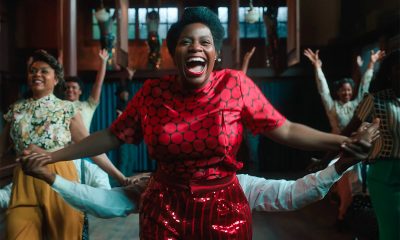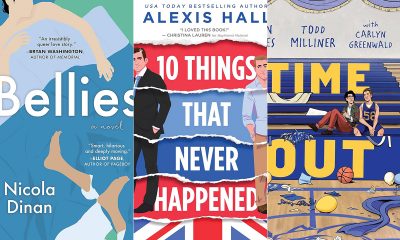Books
Alice Walker sets the record straight in new book
Renowned writer on racism, sexism, and relationship with Tracy Chapman
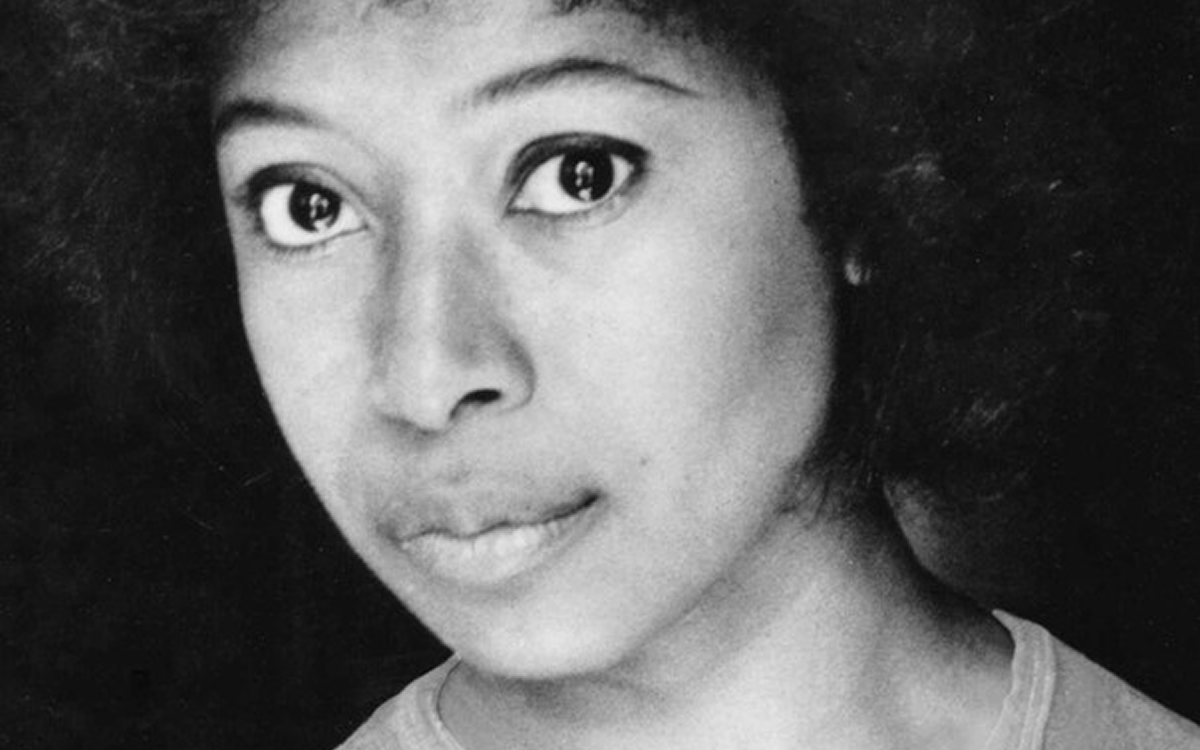
‘Gathering Blossoms Under Fire: The Journals of Alice Walker’
Simon and Schuster
550 pages
For anyone who’s ever wondered whether Alice Walker’s relationship with folk singer Tracy Chapman was a fling or something more, the renowned writer sets the record straight in her latest tome.
“Gathering Blossoms Under Fire: The Journals of Alice Walker” highlights crucial details from the 1960s to the 1990s about the poet, essayist, novelist, and human rights advocate’s public and private lives. The 550-page book includes selected entries from Walker’s journals.
The book is at its best when Walker, now 78, discusses the impact that racism and sexism had on her, and everyone else. Whether she is pushing to protect the environment or speaking out against female genital mutilation (FGM), Walker’s journal entries confirm what many already know: She is outspoken and unafraid to offend most anyone.
The trials and tribulations Walker faced seeking someone with whom she could develop a healthy, longtime relationship also are explored in the book, as are her spiritual evolutions, and her decision to embrace solitude, after her relationship with Chapman and other women and men ended.
“Before leaving on this tour I had dinner with Tracy Chapman,” Walker said in a 1992 entry. “She arrived in jeans & boots, carrying a coffee cake she baked herself. We ate pasta & salad & talked for 5 hours.”
Their relationship lasted two years, despite the 20-year age difference. Walker’s vision of her sexual orientation is expansive.
“The men I have loved and been turned on by have said NO to all forms of domination, racist, classist, sexist or otherwise, and the women have done the same,” she wrote in a 1995 journal entry in the book. “I loved and desired them in their moments of resistance & glory; I love & admire them now.”
The book falls short when Walker includes a plethora of details about her travels around the world to attend readings, accept awards, or just rest and relax with friends and family. These trips increased significantly, along with Walker’s financial standing, after she received the Pulitzer Prize for Fiction in 1983 for “The Color Purple.” But including minutiae about travel plans detracts from Walker’s more serious and relevant work as an author and human rights activist.
Walker’s openness about her bouts with depression and other ailments, seemingly related to aging, is worth including. Her admission that she was insecure about her physical appearance after being shot in the eye with a BB gun as a child also is noteworthy, as are her family’s foibles and her unequivocal love for her parents and seven siblings. (At the funeral of Walker’s mother in Georgia, Chapman was by her side.)
Also notable is Walker’s willingness to hold Ms. magazine accountable for what she said was the liberal, feminist publication’s reluctance to feature women of color on its cover. Walker worked at Ms. at one point and in the book describes Gloria Steinem, the magazine’s founder, as one of her dear friends.
The book’s editor, Valerie Boyd, a writer and professor who died in February, described “Gathering Blossoms Under Fire” in its introduction as a tome for artists, activists, and intellectuals. “It is a primer for all people who want to live free lives,” Boyd wrote.
Walker shares how she felt about her Jewish husband, attorney Mel Leventhal’s, reluctance to leave Mississippi after the couple moved there during the 1960s for his job with the NAACP Legal Defense Fund. Their daughter Rebecca, now 52, was born at that time.
“I surprised myself today, for the first time thinking that had I married a black man we would have had sense enough to know we couldn’t live in Mississippi,” Walker wrote.
Later she said, “I’m not going to stay here much longer — and all the placating, explaining, courageous talk in the world is not going to make me stay here and be destroyed.”
Walker now resides in California.
The Blade may receive commissions from qualifying purchases made via this post.
Books
‘Mean Boys’ raises questions of life, death, and belonging
New memoir wanders but enjoy the whiplash
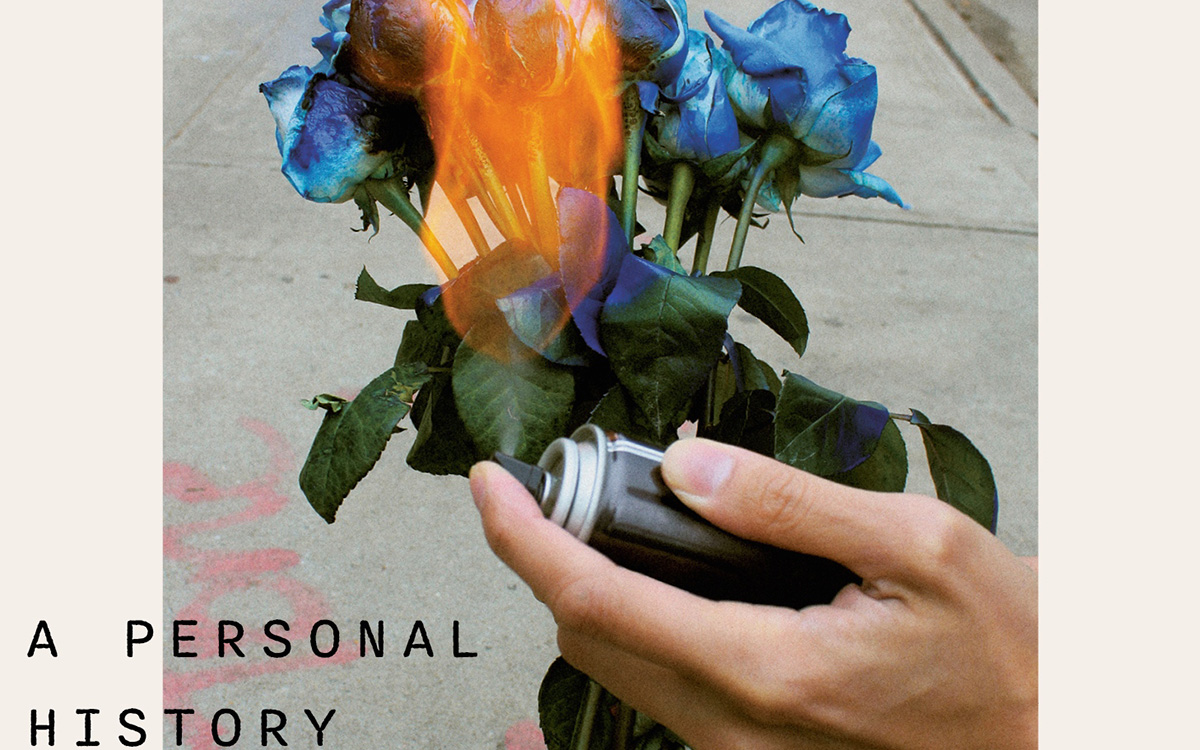
‘Mean Boys: A Personal History’
By Geoffrey Mak
c.2024, Bloomsbury
$28.99/267 pages
It’s how a pleasant conversation is fed, with give and take, back and forth, wandering casually and naturally, a bit of one subject easing into the next with no preamble. It’s communication you can enjoy, like what you’ll find inside “Mean Boys” by Geoffrey Mak.

Sometimes, a conversation ends up exactly where it started.
Take, for instance, Shakespeare’s “King Lear,” which leads Mak to think about his life and his inability to “cull the appropriate narratives out of nonsense.” Part of that problem, he says, was that his living arrangements weren’t consistent. He sometimes “never really knew where I was living,” whether it was Berlin or California, in a studio or high-end accommodations. The parties, the jokes, the internet consumption were as varied as the homes and sometimes, “it didn’t really matter.” Sometimes, you have to accept things and just “move on.”
When he was 12 years old, Mak’s father left his corporate job, saying that he was “called by God” to become a minister. It created a lot of resentment for Mak, for the lack of respect his father got, and because his parents were “passionately anti-gay.” He moved as far away from home as he could, and he blocked all communication with his parents for years, until he realized that “By hating my father, I ended up hating myself, too.”
And then there was club life which, in Mak’s descriptions, doesn’t sound much different in Berghain (Germany) as it is in New York. He says he “threw myself into night life,” in New York Houses, in places that gave “a skinny Chinese kid from the suburbs… rules I still live by,” on random dance floors, and in Pornceptual. Eventually this, drugs, work, politics, pandemic, basically everything and life in general led to a mental crisis, and Mak sought help.
“I don’t know why I’m telling you all this,” Mak says at one point. “Sometimes life was bad, and sometimes it wasn’t, and sometimes it just was.”
Though there are times when this book feels like having a heart-to-heart with an interesting new acquaintance, “Mean Boys” can make you squirm. For sure, it’s not a beach read or something you’ll breeze through in a weekend.
No, author Geoffrey Mak jumps from one random topic to another with enough frequency to make you pay close to attention to his words, lest you miss something. That won’t leave you whiplashed; instead, you’re pulled into the often-dissipated melee just enough to feel almost involved with it – but with a distinct sense that you’re being held at arms’ length, too. That some stories have no definitive timeline or geographical stamp – making it hard to find solid ground – also adds to the slight loss of equilibrium here, like walking on slippery river rocks.
Surprisingly, that’s not entirely unpleasant but readers will want to know that the ending in “Mean Boys” could leave their heads swirling with a dozen thoughts on life, belonging, and death. If you like depth in your memoirs, you’ll like that — and this.
The Blade may receive commissions from qualifying purchases made via this post.
Books
New book offers observations on race, beauty, love
‘How to Live Free in a Dangerous World’ is a journey of discovery
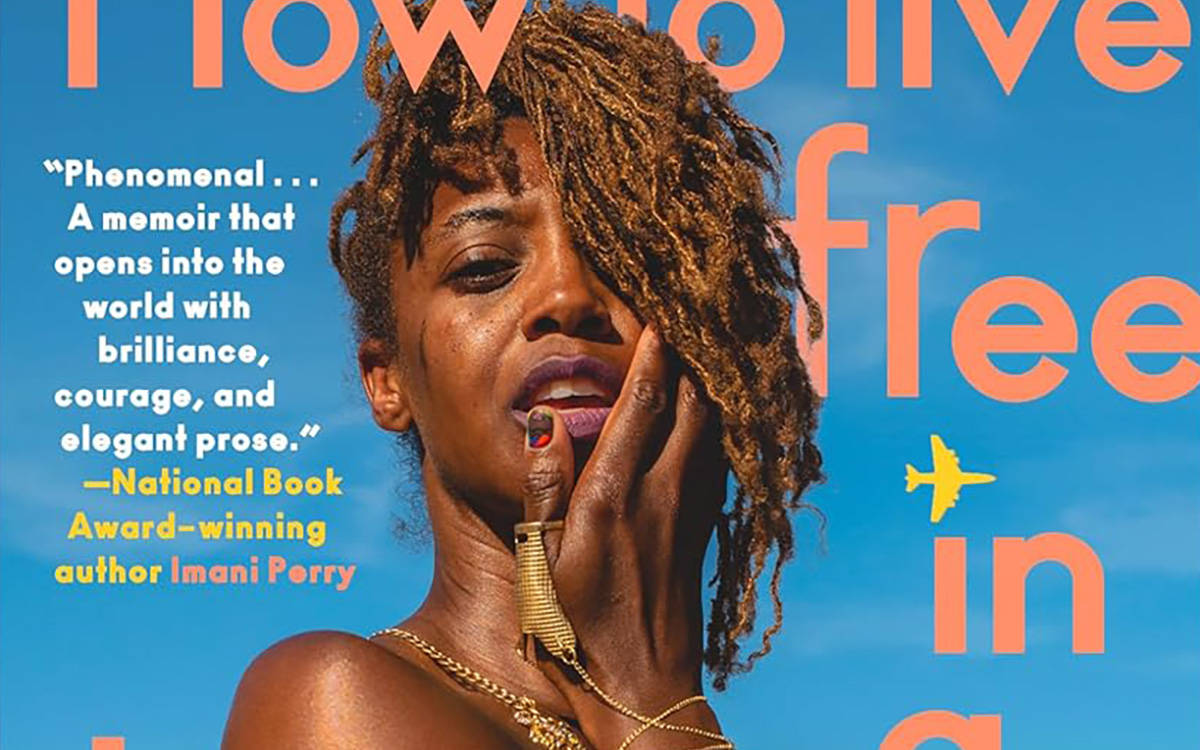
‘How to Live Free in a Dangerous World: A Decolonial Memoir’
By Shayla Lawson
c.2024, Tiny Reparations Books
$29/320 pages
Do you really need three pairs of shoes?
The answer is probably yes: you can’t dance in hikers, you can’t shop in stilettos, you can’t hike in clogs. So what else do you overpack on this long-awaited trip? Extra shorts, extra tees, you can’t have enough things to wear. And in the new book “How to Live Free in a Dangerous World” by Shayla Lawson, you’ll need to bring your curiosity.

Minneapolis has always been one of their favorite cities, perhaps because Shayla Lawson was at one of Prince’s first concerts. They weren’t born yet; they were there in their mother’s womb and it was the first of many concerts.
In all their travels, Lawson has noticed that “being a Black American” has its benefits. People in other countries seem to hold Black Americans in higher esteem than do people in America. Still, there’s racism – for instance, their husband’s family celebrates Christmas in blackface.
Yes, Lawson was married to a Dutch man they met in Harlem. “Not Haarlem,” Lawson is quick to point out, and after the wedding, they became a housewife, learned the language of their husband, and fell in love with his grandmother. Alas, he cheated on them and the marriage didn’t last. He gave them a dog, which loved them more than the man ever did.
They’ve been to Spain, and saw a tagline in which a dark-skinned Earth Mother was created. Said Lawson, “I find it ironic, to be ordained a deity when it’s been a … journey to be treated like a person.”
They’ve fallen in love with “middle-American drag: it’s the glitteriest because our mothers are the prettiest.” They changed their pronouns after a struggle “to define my identity,” pointing out that in many languages, pronouns are “genderless.” They looked upon Frida Kahlo in Mexico, and thought about their own disability. And they wish you a good trip, wherever you’re going.
“No matter where you are,” says Lawson, “may you always be certain who you are. And when you are, get everything you deserve.”
Crack open the front cover of “How to Live Free in a Dangerous World” and you might wonder what the heck you just got yourself into. The first chapter is artsy, painted with watercolors, and difficult to peg. Stick around, though. It gets better.
Past that opening, author Shayna Lawson takes readers on a not-so-little trip, both world-wide and with observant eyes – although it seems, at times, that the former is secondary to that which Lawson sees. Readers won’t mind that so much; the observations on race, beauty, love, the attitudes of others toward America, and finding one’s best life are really what takes the wheel in this memoir anyhow. Reading this book, therefore, is not so much a vacation as it is a journey of discovery and joy.
Just be willing to keep reading, that’s all you need to know to get the most out of this book. Stick around and “How to Live Free in a Dangerous World” is what to pack.
The Blade may receive commissions from qualifying purchases made via this post.
Books
Story of paralysis and survival features queer characters
‘Unswerving: A Novel’ opens your eyes and makes you think
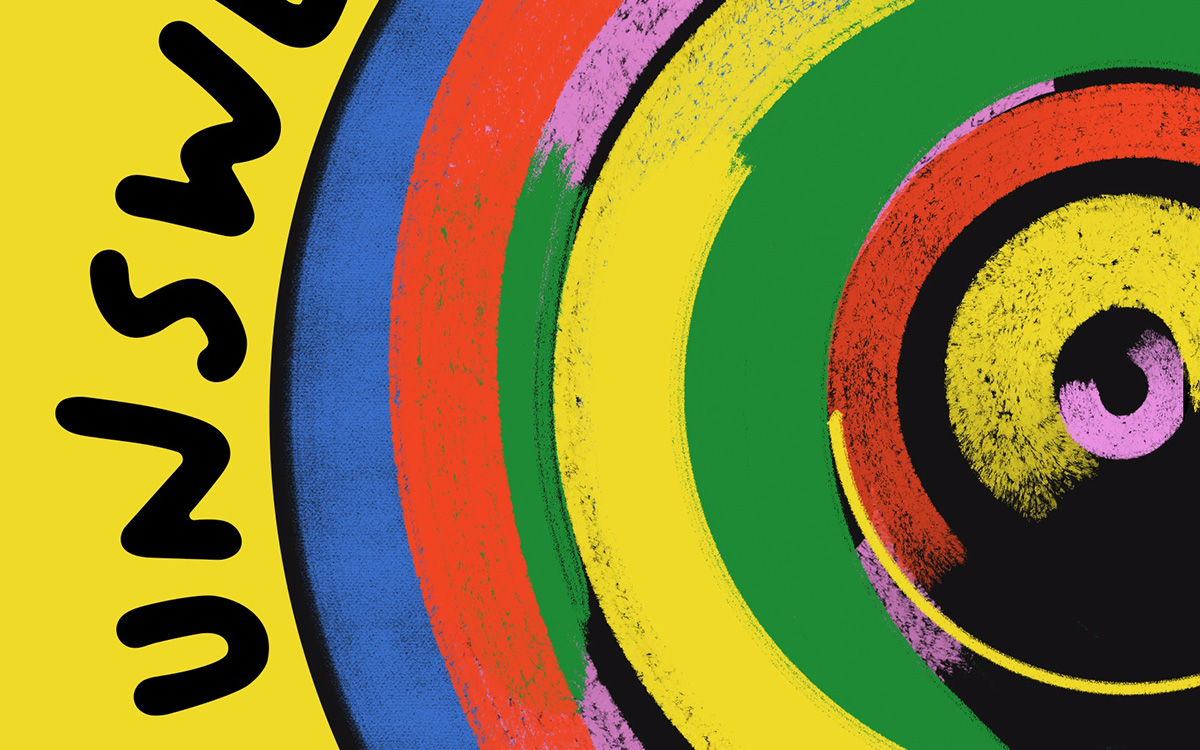
‘Unswerving: A Novel’
By Barbara Ridley
c.2024, University of Wisconsin Press
$19.95 / 227 pages
It happened in a heartbeat.
A split-second, a half a breath, that’s all it took. It was so quick, so sharp-edged that you can almost draw a line between before and after, between then and now. Will anything ever be the same again? Perhaps, but maybe not. As in the new book “Unswerving” by Barbara Ridley, things change, and so might you.

She could remember lines, hypnotizing yellow ones spaced on a road, and her partner, Les, asleep in the seat beside her. It was all so hazy. Everything Tave Greenwich could recall before she woke up in a hospital bed felt like a dream.
It was as though she’d lost a month of her life.
“Life,” if you even wanted to call it that, which she didn’t. Tave’s hands resembled claws bent at the wrist. Before the accident, she was a talented softball catcher but now she could barely get her arms to raise above her shoulders. She could hear her stomach gurgle, but she couldn’t feel it. Paralyzed from the chest down, Tave had to have help with even the most basic care.
She was told that she could learn some skills again, if she worked hard. She was told that she’d leave rehab some day soon. What nobody told her was how Les, Leslie, her partner, girlfriend, love, was doing after the accident.
Physical therapist Beth Farringdon was reminded time and again not to get over-involved with her patients, but she saw something in Tave that she couldn’t ignore. Beth was on the board of directors of a group that sponsored sporting events for disabled athletes; she knew people who could serve as role models for Tave, and she knew that all this could ease Tave’s adjustment into her new life. It was probably not entirely in her job description, but Beth couldn’t stop thinking of ways to help Tave who, at 23, was practically a baby.
She could, for instance, take Tave on outings or help find Les – even though it made Beth’s own girlfriend, Katy, jealous.
So, here’s a little something to know before you start reading “Unswerving”: author Barbara Ridley is a former nurse-practitioner who used to care for patients with spinal cord injuries. That should give readers a comfortable sense of satisfaction, knowing that her experiences give this novel an authenticity that feels right and rings true, no faking.
But that’s not the only appeal of this book: while there are a few minor things that might have readers shaking their heads (HIPAA, anyone?), Ridley’s characters are mostly lifelike and mostly likable. Even the nasties are well done and the mysterious character that’s there-not-there boosts the appeal. Put everyone together, twist a little bit to the left, give them some plotlines that can’t ruined by early guessing, and you’ve got a quick-read novel that you can enjoy and feel good about sharing.
And share you will because this is a book that may also open a few eyes and make readers think. Start “Unswerving” and you’ll (heart) it.
The Blade may receive commissions from qualifying purchases made via this post.
-

 South America5 days ago
South America5 days agoPeruvian government classifies transgender people as mentally ill
-

 Autos3 days ago
Autos3 days agoSeductive sport-utes: Buick Evista, Subaru Outback
-
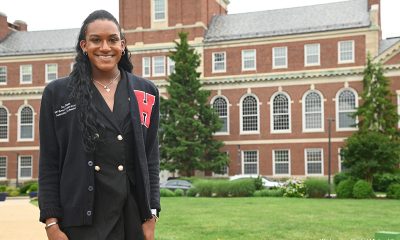
 District of Columbia5 days ago
District of Columbia5 days agoMeet Jay Jones: Howard’s first trans student body president
-

 Congress3 days ago
Congress3 days agoHouse ethics complaint filed over GOP staffer’s anti-trans email



